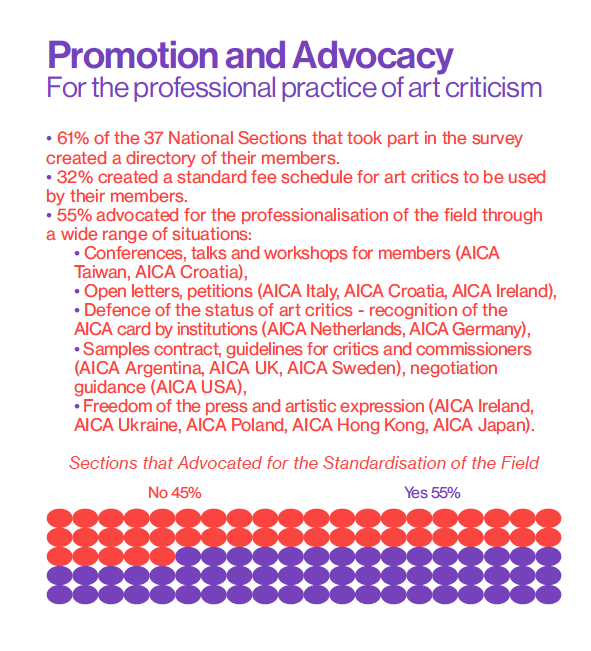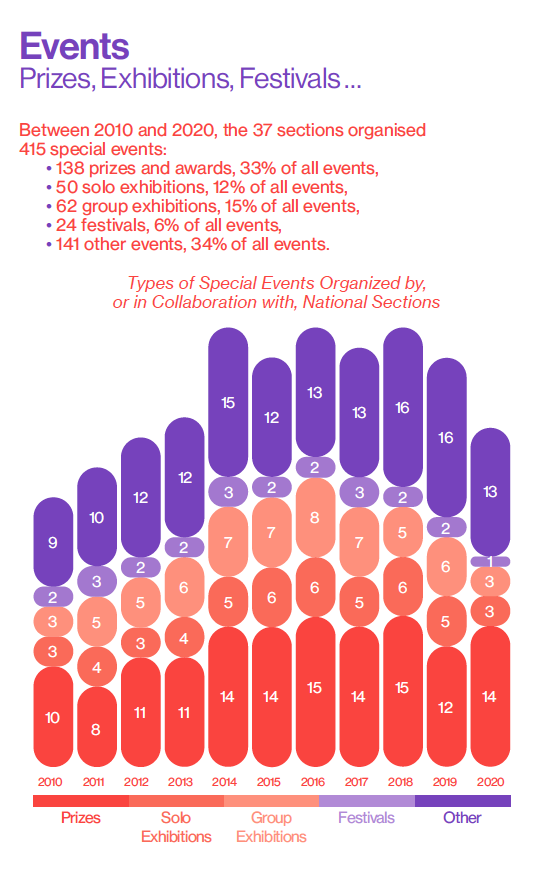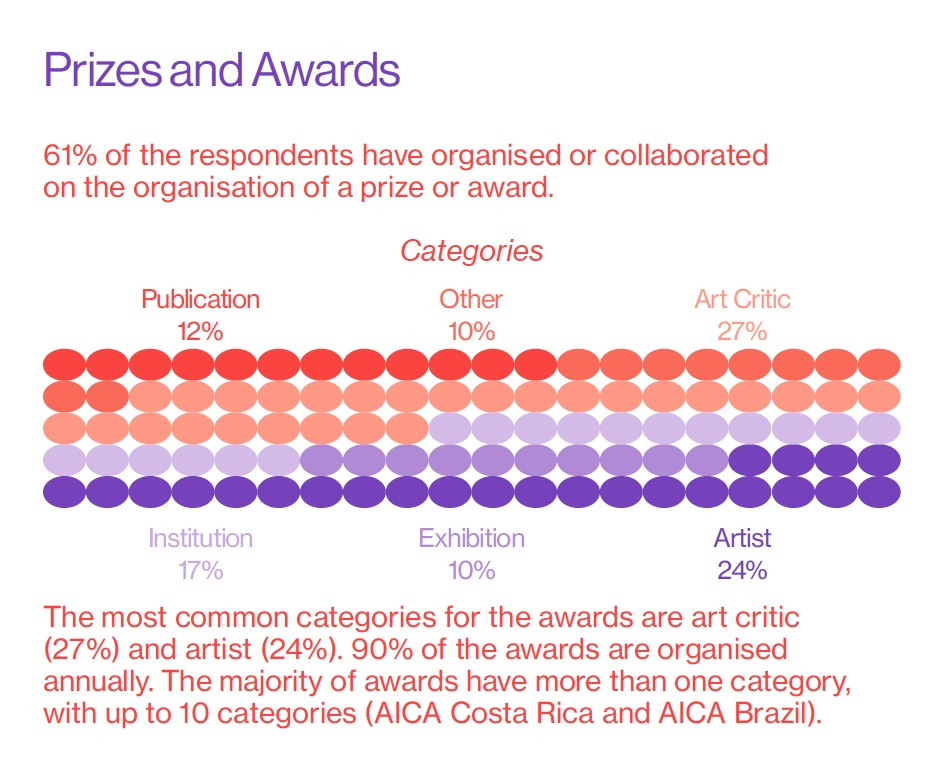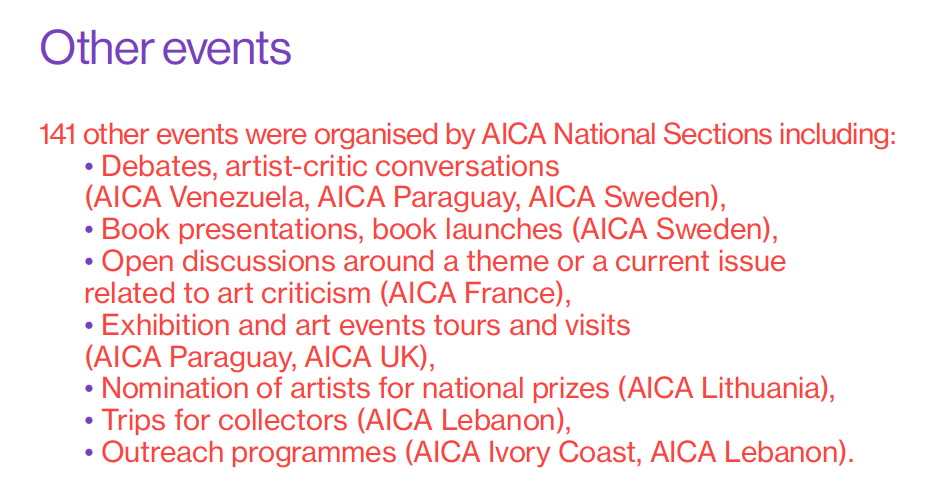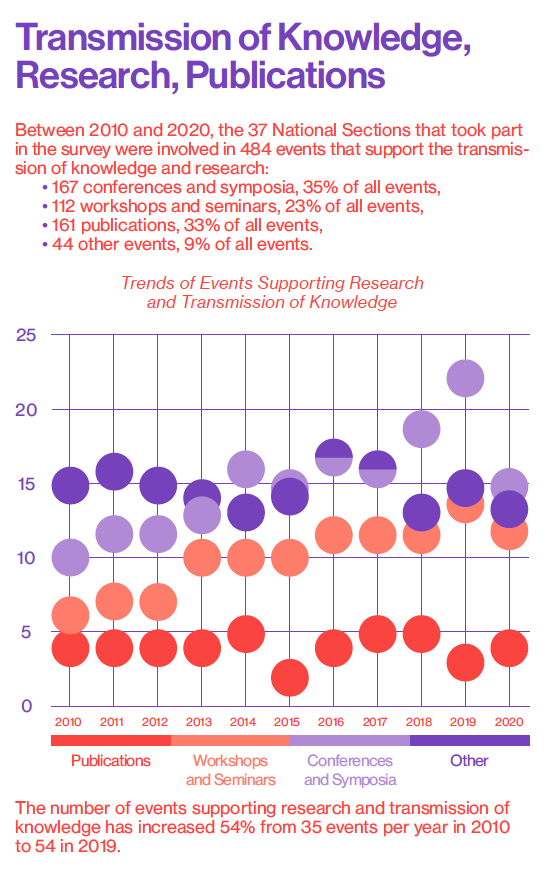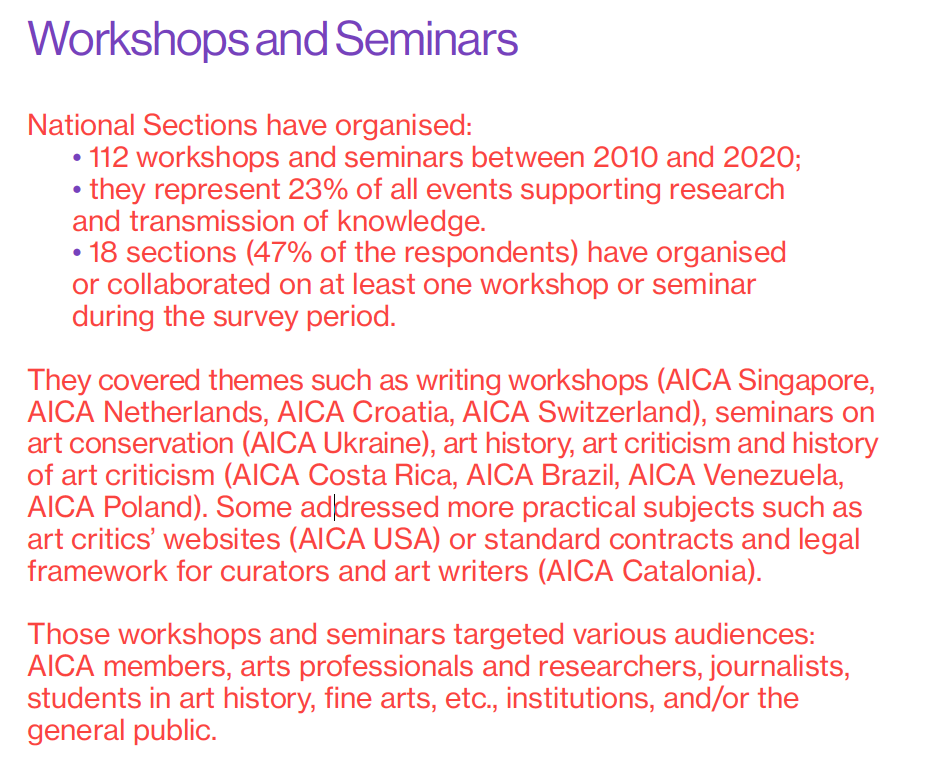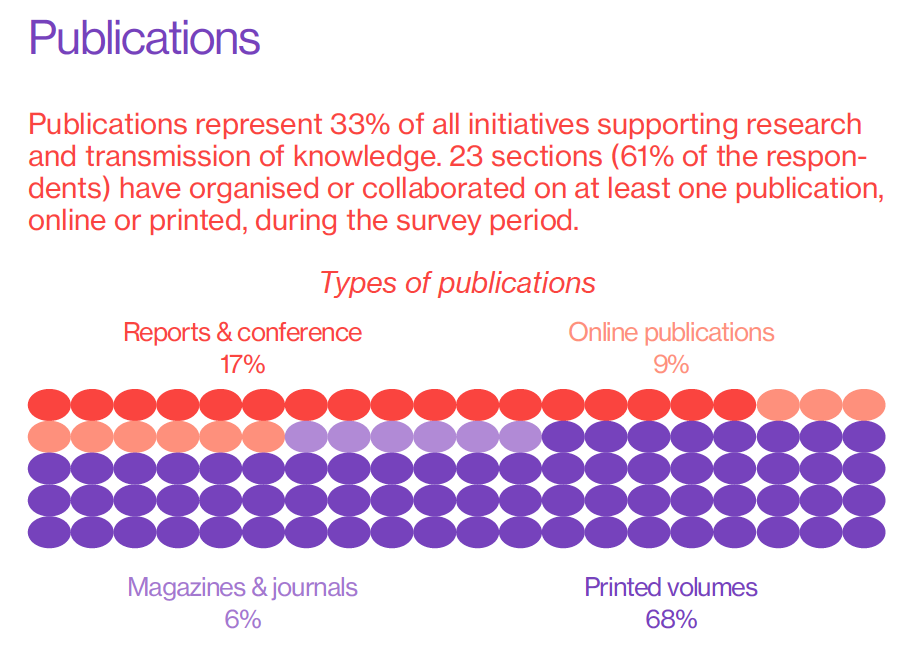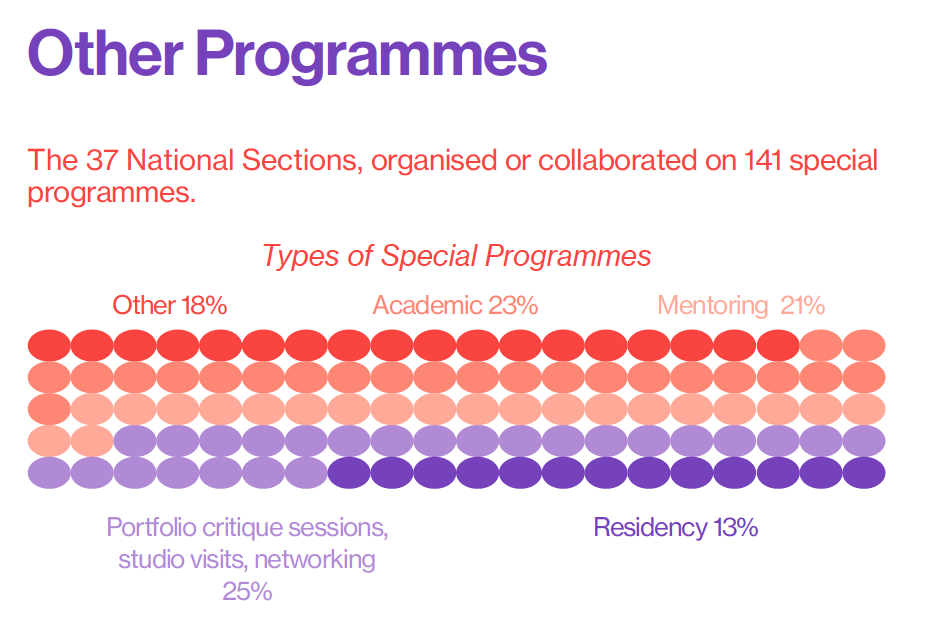Labour Conditions in the Arts
This survey was developed by Elli Leventaki, Mary Mikaelyan, and Omar Mirza on behalf of AICA International, intending to map the labour conditions of its members worldwide and understand the diverse spectrum of jobs they do.
This project was initiated during the 55th AICA Congress in Kraków, Poland (2023) as part of the AICA Academy program, organized by Mathilde Roman with the support of AICA Poland, and implemented with the guidance of Sonia Recasens.
The survey was conducted anonymously from March to April 2024, through a Google Form of 16 questions that was shared by AICA International and the national sections, receiving 434 responses from members all around the world.
Through the collected answers, a broad spectrum of paid employment among participants was revealed, as well as a high level of commitment to the art field, regardless of the monetary reward.
Despite the diverse range of realities for AICA members, the outcome of the survey reflects their resilience, in defiance of the precarious nature of art-related professions, and suggests an overall consensus towards the necessity for recognition of their work, through better and more stable wages.
You can read the findings of the survey here.
AICA Cartography 2010 - 2020
Click on the map to download the pdf - Cliquer sur la carte pour télécharger le pdf - Haga clic en el mapa para descargar el pdf
National Sections’ Activities and Actions Survey
Initiated by AICA International Secretariat and supported by its Board, this mapping is the result of a survey whose objective was better to understand the work carried out by the National Sections over the past 10 years and to reflect on how to promote and better publicise the wide-ranging activities, global reach and diversity of AICA.
It is a summary of the information gathered from the 37 Sections that responded to the survey: Argentina, Australia, Belgium, Brazil, Catalonia, Costa Rica, Croatia, Dominican Republic, France, Germany, Hong Kong, Ireland, Israel, Italy, Ivory Coast, Japan, Kazakhstan, Lebanon, Lithuania, Morocco, Netherlands, North Macedonia, Paraguay, Poland, Portugal, Romania, Singapore, Slovenia, Spain, Sweden, Switzerland, Taiwan, Turkey, Ukraine, United Kingdom, USA, Venezuela. They represent 63% of the 59 sections, 4088 members, or 74% of the total number of 5500 members.
















